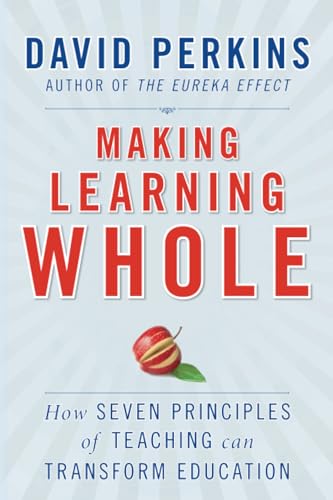Customer Services
Copyright © 2025 Desertcart Holdings Limited






Making Learning Whole: How Seven Principles of Teaching Can Transform Education [Perkins, David] on desertcart.com. *FREE* shipping on qualifying offers. Making Learning Whole: How Seven Principles of Teaching Can Transform Education
Trustpilot
3 weeks ago
2 weeks ago
3 weeks ago
1 month ago